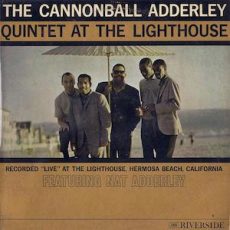
Requisites
The Cannonball Adderley Quintet at The Lighthouse | By Eddie Carter
One of the things I’ve always loved about alto saxophonist Cannonball Adderley was his uncanny rapport with an audience during the group’s live performances. Those who were in attendance could feel they were about to hear something special. This morning’s choice from the library is a 1960 album, The Cannonball Adderley Quintet at The Lighthouse (Riverside RLP 344/RLP 9344). It’s the ensemble’s second live album following their successful date in San Francisco a year earlier. Cannonball’s joined on stage by Nat Adderley on cornet, Victor Feldman on piano, Sam Jones on bass, and Louis Hayes on drums. My copy used in this report is the original US deep groove Mono release.
Side One opens with Cannonball’s Sack O’ Woe, a catchy little number that starts this jazz party on the quintet’s infectious theme. The leader takes the first bite of this juicy tune. Nat comes in next, clicking on all cylinders. Victor serves up a solidly swinging solo, then Sam gets into a soulful groove leading to the reprise and fadeout. Big P by Jimmy Heath is dedicated to his big brother, Percy. After Cannon’s introduction, the quintet gets busy with the front line leading the charge on the melody. Cannonball lights a fuse of creative inspiration on the lead solo, then Nat works his magic on the second statement. Victor follows with a reading that’s just plain fun, then the front line speaks in succession ahead of the ensemble’s exit.
The first side finale is Blue Daniel, a pretty waltz by trombonist Frank Rosolino that comes to life with the group’s beautiful theme in unison. Cannonball begins with a charming interpretation of graceful elegance. Nat responds with a wonderful feeling of peaceful serenity. Victor delivers a delicately gentle finale before the ensemble reappears for the ending. Side Two begins on an upbeat note with a tune from the pen of Victor Feldman, Azule Serape. The rhythm section provides a brisk foundation for the front line to state the melody. Cannonball takes flight first with a happy opening statement. Nat’s cornet is right on the money on the following solo. Victor cooks on the climax leading to the closing chorus.
Exodus is credited to Vic Stanley, but it’s Victor Feldman’s tune. It turns the temperature upward a few notches with the ensemble’s spirited theme. Cannonball starts with an enthusiastic opening interpretation. Nat takes the next solo aggressively, and Victor is equal to the task on the closer preceding the quintet’s exit. The set closes on one of Cole Porter’s most recorded songs, What Is This Thing Called Love? The song gets underway with the ensemble’s quick melody. Cannonball kicks off the solos with a rapid reading. Nat shifts into high gear on the second solo. Victor has his say next with an exciting statement of concentrated heat, and Louis shares a lively exchange with Cannonball leading to the climax.
The Cannonball Adderley Quintet at The Lighthouse was produced by Orrin Keepnews. Wally Heider was the recording engineer, and the album was mastered by Jack Matthews. The sound quality is exquisite with an impressive soundstage placing the listener in the club audience as the quintet performs. During his time at Riverside, the quintet and later sextet released three other live albums. All are excellent in my opinion, and if you’re a fan of Cannonball or Nat Adderley, they’re well worth the effort for a spot in your library. If you’re in the mood for a great live album, and only know of their work on Mercy, Mercy, Mercy, I invite you to check out The Cannonball Adderley Quintet at The Lighthouse. It’s a wonderful performance where the band’s on fire and the audience is enjoying every moment!
~ Jazz Workshop Revisited (Riverside RM 444/RS 9444), Mercy, Mercy, Mercy (Capitol Records T 2663/ST 2663), The Cannonball Adderley Sextet In New York (Riverside RLP 404/RLP 9404), The Cannonball Adderley Quintet In San Francisco (Riverside RLP 311/RLP 1157) – Source: Discogs.com ~ What Is This Thing Called Love? – Source: JazzStandards.com © 2022 by Edward Thomas Carter
More Posts: choice,classic,collectible,collector,history,instrumental,jazz,music,saxophone
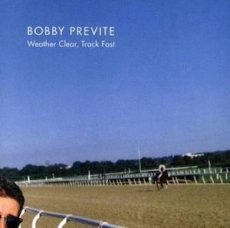
Daily Dose Of Jazz…
Bobby Previte was born July 16, 1951 in Niagara Falls, New York. He started playing early but went on to earn a degree in economics from the University at Buffalo, New York where he also studied percussion.
Moving to New York City in 1979 he began professional relationships with John Zorn, Wayne Horvitz, and Elliott Sharp. While Previte is a talented drummer he has also received critical acclaim for his exceptional abilities as a composer and orchestrator. His compositions are often tightly arranged, although they leave room for significant amounts of improvisation. Additionally, Previte often uses unusual instrumentation and also draws on many non-jazz musics for his compositions.
As a performer much of his work is also improvisational. He has recorded three dozen albums as a leader or co-leader and as a sideman played on 85 recording sessions across numerous genres of music. Drummer, composer and orchestrator Bobby Previte, who has delved into the jazz, avant~garde and rock genres as a leader, continues to expand his career.
More Posts: bandleader,composer,drums,history,instrumental,jazz,music,orchestrator
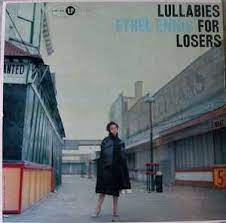
The Quarantined Jazz Voyager
This Jazz Voyager is still being very cautious about masking indoors and social distancing as the new B variants are cropping up around the world and are now hitting the shores of America. In light of these occurrences, today we are going to listen to the 1955 Ethel Ennis album recorded titled Lullabies For Losers that was released the same year on the Jubilee record label.
The cover was designed by Si Leichman, the liner notes were written by Mort Goode, and the photography by Charles Varon.
Track List | 37:32
- Love For Sale (Cole Porter) ~ 3:19
- Dreamer~Dreamer (Irving Caesar, Oskar Strauss) ~ 4:30
- Blue Prelude (Gordon Jenkins, Joe Bishop) ~ 3:00
- Off Shore (Leo Diamond, Michael H. Goldsen) ~ 3:55
- Casually (Alan McCarthy, Richard Freitas) ~ 3:57
- Hey Jacques (Eden Ahnez, Wayne Shanklin) ~ 3:03
- Lullaby For Losers (Robert Stringer) ~ 3:00
- Say It Ain’t So, Joe (Al Frisch, Kathleen G. Twomey, Fred Wise) ~ 2:58
- You Better Go Now (Bickley Reichner / Robert Graham) ~ 3:29
- Blue Willow (Vic Harrington) ~ 3:23
- Bon Voyage (DeSylva-Brown-Henderson) ~ 4:18
- Ethel Ennis ~ Vocal
- Hank Jones ~ Piano
- Eddie Biggs ~ Guitar
- Abie Baker ~ Double Bass
- Kenny Clarke ~ Drums
More Posts: adventure,album,club,festival,genius,jazz,museum,music,preserving,restaurant,travel,vocal
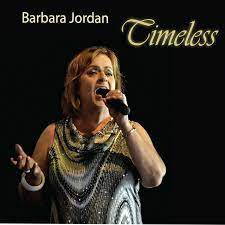
Daily Dose Of Jazz…
Barbara Jordan was born on July 13, 1951 in Montreal, Canada and when she was in her last year of high school she realized her singing ability. Her high school music teacher, Iwan Edwards, encouraged her to audition for the lead role of Laurie in the musical Oklahoma. Getting the part she received her first lessons in stage presence and delivering a song. She joined the high school choir, and took a vocal music class in her last year of high school.
Joining an acapella choir outside of school, she also spent five years in this choir performing around Montreal and touring Western Canada and competed in the Eisteddfod in Wales. Her professional musical career began as a folk singer prior to becoming a multi-lingual vocalist with several leading disco, pop and country/western bands in and around the Montreal area.
Settling in Toronto, Canada she has acquired a reputation over the years singing traditional and swing. She has continuously performed in clubs around the Toronto area, New York, and New Orleans, as well as at various jazz festivals in Ontario, Montana, St. Petersburg and Sarasota, Florida; Newcastle, England and Paris, France.
Trad jazz, dixieland and swing vocalist Barbara Jordan, whose influences were Mildred Bailey, Peggy Lee and Lee Wiley, continues to lead her quartet and appear regularly.
More Posts: bandleader,history,instrumental,jazz,music,vocal
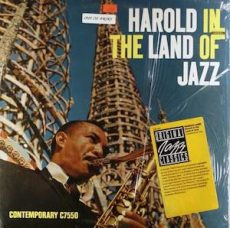
Requisites
Harold In The Land of Jazz ~ Harold Land | By Eddie Carter
Harold Land steps into the spotlight this morning with his 1958 album, Harold In The Land of Jazz (Contemporary Records C7550/S7550). Harold was one of the best West Coast tenor saxophonists with fifteen albums as a leader and an extensive discography as a sideman to his credit. He was on track for more success in some of the best small jazz groups when an illness in his family caused him to leave the East Coast and return to Los Angeles in 1956. For his first date as a leader, Land’s assembled a splendid supporting cast; Rolf Ericson on trumpet, Carl Perkins on piano, Leroy Vinnegar on bass, and Frank Butler on drums. My copy used in this report is the 1984 Contemporary Records Original Jazz Classics US Stereo reissue (OJC-162 – C-7550).
Side One kicks off this trip with Speak Low by Kurt Weill and Ogden Dash. This jazz standard was introduced in the Broadway musical, One Touch of Venus (1943), and the quintet gets busy quickly with the melody. Harold heats up the lead solo vigorously. Rolf keeps up the exhilarating pace on the second statement. Carl enters next with enthusiastic energy, then Frank exhibits his wizardry ahead of the ensemble’s rousing finale. Up next is Delirium, a medium swinger by Harold Land. The trio makes the introduction, succeeded by the quintet’s theme. Harold begins cruising down the road at a comfortable speed, then Rolf picks up the journey at an unhurried pace. Carl gets the next spot for an impressive presentation that flows vibrantly, and Frank adds a brief footnote leading to the group’s exit.
You Don’t Know What Love Is by Don Raye and Gene De Paul was written for an Abbott and Costello comedy, Keep ‘Em Flying (1941). It didn’t appear in the film but became a jazz standard after Miles Davis recorded it a few years later on All-Star Sextet (1954). It’s a beautiful quartet performance by Harold and the trio. As the song’s only soloist, the tenor sax tells a poignant, bittersweet story reinforced by the rhythm’s serene support. Nieta by Elmo Hope takes us to a tropical climate with a cheerful introduction ahead of the ensemble’s happy theme. Harold partakes in the festivities on the first solo. Carl adds to the celebratory spirit in the next reading, and Rolf sinks his teeth into a spicy statement. Frank gets a brief moment to shine before the reprise.
Side Two opens with Grooveyard, a breezy blues by Carl Perkins who passed away two months later from a drug overdose on March 16, 1958. As a tribute to the pianist, Harold changed the album’s title to Grooveyard for the Stereo release. After the trio’s introduction, the quintet begins the charming melody. Carl opens with a delightfully mellow groove. Rolf takes over on the muted horn with a solo as relaxing as a cup of Chamomile Tea. Harold is up next with an exquisite display that builds to a satisfying peak. Leroy puts the cherry on top with a gorgeous reading. Lydia’s Lament is Harold’s tune named for his wife. It starts with a sublimely solemn collective melody. Harold is the only soloist, and he delivers a touching performance reminiscent of a faint and lamentable cry of sadness.
Smack Up by Harold Land wraps up our seven-song journey with Butler’s brisk introduction ahead of the ensemble’s theme. Harold sets the table with a spirited lead solo; next Rolf follows with a reading of pure delight. Carl shows off his impeccable chops then gives way to Frank’s rousing exchange with the front line into the close. Harold In The Land of Jazz was originally produced by Lester Koenig, and the engineers are Roy DuNann and Howard Holzer. Their work clearly shows in this OJC reissue because it possesses an excellent soundstage that transports the listener’s sweet spot to the studio surrounded by the musicians. Elmo Hope and Harold worked together on the arrangements of all seven tracks.
Harold Land had a lengthy career lasting nearly five decades and also taught jazz studies at the University of California. He passed away at age seventy-two from a stroke on July 27, 2001; but is still remembered for his robust tone and his skill as an improviser. If you’re in the mood for Hard-Bop, I offer for your consideration, Harold In The Land of Jazz by Harold Land. It’s a terrific album of wonderful performances that I happily recommend to anyone who loves jazz and should not be overlooked the next time you’re shopping for vinyl treasure!
~ Miles Davis All-Star Sextet (Prestige PRLP 182) – Source: Discogs.com ~ Speak Low, You Don’t Know What Love Is – Source: JazzStandards.com ~ Harold Land, Carl Perkins – Source: Wikipedia.org © 2022 by Edward Thomas Carter
More Posts: choice,classic,collectible,collector,history,instrumental,jazz,music,saxophone




